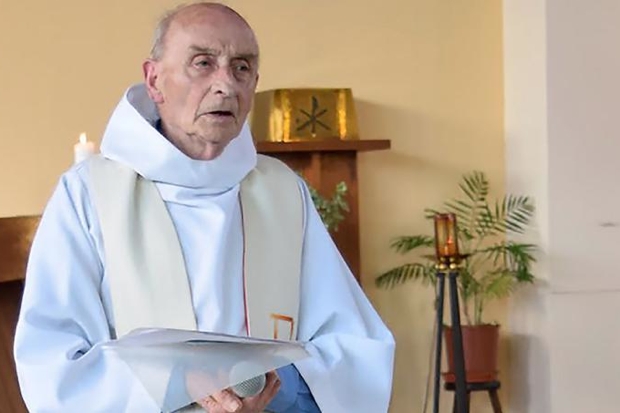On the bright side, the elderly priest who was murdered during mass in Saint-Etienne-du-Rouvray near Rouen, had pretty well a perfect ending in Christian terms: celebrating the eucharist and targeted precisely because he was a priest. Two men took him hostage during mass, along with a couple of nuns and a couple of members of the congregation and they slit his throat – not quite the decapitation favoured by Islamic State in its own territory, but not for want of trying. By one account, one of the men shouted Daesh during the attack, which is odd, because this is the euphemistic term used by those who wish to call IS by a pejorative name without any obvious Muslim associations. Anyway, being murdered for your faith counts as martyrdom, so as far as the priest was concerned, he’s ended his life giving witness to the faith, involuntarily or not.
The reason for the attack seems perfectly clear – an attack on Christians at mass by Muslim jihadists hardly needs parsing, does it? – as indeed the French prime minister, Manuel Valls, observed when he said on Twitter that the ‘barbaric’ attack was a blow to Catholics and the whole of France. ‘We will stand together,’ he said. How, exactly? Yet most of the reports at this point, led by the French interior minister, Pierre-Henry Brandet, say the motivation for the hostage taking was ‘unclear’… but it’s all too clear, surely?
Douglas Murray and Haras Rafiq discuss Europe’s summer of terror:
It’s been quite a week, hasn’t it, for the Islamist enemy within? There was the attempted abduction – or murder – of a British serviceman outside a Norfolk airbase and two out of three homicidal attacks in Germany were conducted by Islamist refugees. In France, we just keep counting; this murder of a priest was, unlike the Bastille Day murders, targeted and sectarian, but it’s one more for IS to take credit for. If the object of the exercise is to make Europeans feel that they are safe nowhere; not on a public boulevard, not in a train, not in a church, well, I suppose it’s working. And there is absolutely nothing we can do to guard against random attacks in public spaces. It always feels a bit bogus to say that we’re not going to give way to terrorism every time we go to a wretched shopping mall but that’s about the size of it; simply by going on holiday to the south of France, we can brag about not being cowed. Actually, I have every intention of going to Paris, but I’d be lying if I said it was to make a stand against terrorism; it’s pure sybaritism. Je Suis Parisienne, folks.
All we can do is be as honest as possible about the nature and scale of the problem. In Michel Houellebecq’s novel, Submission, about a Muslim Brotherhood takeover of the French government (liberals and conservatives agreed this would be preferable to a National Front government), the interestingly prescient element was the non-reporting by television and papers of outbreaks of violence prior to the change of government (Twitter didn’t really feature in this novel). And that rings true. We’ve already got self-censorship when it comes to reporting attacks by Muslim refugees (the gun attack by a German-Iranian patently fell into a different category) in Germany and Scandinavia, and an almost comical reluctance anywhere in Europe to identify Islamist attacks as such – until IS takes credit for them, even the work of freelances. Plainly we have to guard against language that would demonise an entire community, but within that reasonable limit, we must require both politicians and public service broadcasters to talk plainly. And when Muslim extremists slit the throat of a priest in his own church, we’re looking at religiously motivated murder, entirely of a piece with the same religiously motivated murder of Christians and others being carried out in the Middle East. Shall we say so?







Comments